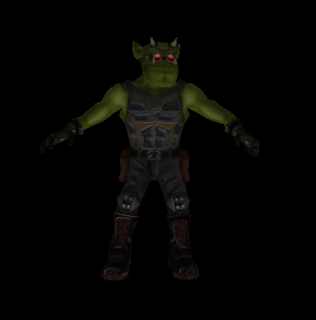In my never ending search for a FOSS game engine that is usable for game modding with out having to reinvent the wheel (nor requiring to be a C++ code master) & having decent tools for content creation (because I am spoiled and think that is a minimum requirement for a game engine) I have become quite disillusioned lately. That is because *spoiler alert* sadly there is none so far... but a few are close luckily.
The usual contenders for 3D action games are your mixed assortment of
idTech based engines, most notably
ioQuake3. There are a few upcoming contenders like
Unvanquished's Daemon engine (which is a mix of ET:Wolf, ioQuake3 and Xreal) and a yet to emerge idTech4 based champion (my uninformed guess is that it will be
dhewm3). But all of them lack a decent game-play scripting function.
On the other side of the idTech spectrum, there is the idTech1 based granddaddy
DarkPlaces, which while having advanced to an quite impressive feature set, suffers a quite a bit from its nut-bolted & mostly undocumented client side add-on on the already a bit arcane script language QuakeC.
Interestingly the idTech2 based engines get little attention though. I have highlighted a few nice game projects based in it in the
past, but it is probably due to the fact that each project is hacking on their own engine fork, that none has gained prominence as a game
engine on it's own. But feature wise the engines behind
AlienArena,
Overdose and
Warsow are probably the most advanced.
The last one of these, has been probably the most overlooked, with the game itself not exactly open-source friendly and the engine being developed more or less behind closed doors. It seems however that this has changed now, although given
recent project news it is unclear what made them change their approach. But an all new version of it is now on
Github with the main developer mentioning a few really nice changes
here. Let's hope it isn't just a "source-drop" of a dying project, as after digging into it a bit (the documentation is really fragmented and lacking) I have to say that it includes a few really awesome features not commonly seen in other FOSS engines:
Besides being really performant, it is fully scriptable and has some quite unique multiplayer features like awards, friendlists and persistent game statistics. It also seems to make good process in having easy to edit GLSL shaders, which I have realized is a much rarer feature than I originally thought. Last but not least it has a really modern looking and fully scriptable menu and HUD.
Ah and before I move on to non-idTech based engines I should mention
Engoo for those looking for a modernized software rendering engine based on idTech1 (there was some controversy over it, so I am trying to show some support for its further development here).
Ok, that covered, what are some maybe under appreciated non-idTech 3D engines?
First of all I should probably mention the well known ones for the sake of completeness:
Cube2,
Ogre3D and the new big player
Torque3D. All of which are IMHO still failing to provide a good platform for easy game creation (mainly due, following the same order: in-fexibility & lack of scripting; huge mess of independent parts & bad toolchain; lack of Linux port & buggy and overly complicated toolchain).
One of the shining but lesser known examples of trying to improve the status quo is the
jMoneky3 engine. Even though it is still a bit bare-bone (e.g. lacking game frameworks) the nicely integrated SDK and the
great new node based GLSL shader editor keeps on attracting my attention. Similary the
BlenderGameEngine sure has a few great advantages due to its tight integration. Sadly it seems to be the unliked stepchild of the Blender3D project though, which some quite serious limitations and awesome additions like the
candy branch never reaching the the main release.
Then there are the still very much alive big names of the past:
Irrlicht and
Crystal Space. I am not exactly sure why those never quite reached the required mass to become
the engines of choice, but I guess the license mess around Irrklang (and other non free but more or less required addons) and the CS
Yo Frankie disaster might have to do with it. But at least Crystal Space was
accepted as a hosting organization for this year's GSoC again, so they must be doing something right.
Last but not least, I would like to give a mention to a relatively new contender:
Octaforge, which has supplied a steady stream of updated betas lately. The interesting things about Octaforge is that it takes all the good things from Cube2 and combines it with a much updated renderer (Tesseract) and full lua script support. But sadly it isn't quite there yet, and the move to a scripting language required the removal of all the nice game-code that it inherited from Cube2.
As closing remarks I have to admit that this article was rather lopsided towards FPS game engines (and more general purpose ones). Of course there are many great other game engines in the FOSS sphere that focus on RTS or (MMO)RPG games etc. I do however feel that many of the grievances voiced here probably apply there too, but maybe it isn't quite as frustrating there as in the FPS genre.
But if you have some better insights into those type of engines feel free to comment below!
tl;dr: the author (as an old school modder) is frustrated that after all these years there still isn't an FOSS FPS engine that can be modded as comfortably as the Half-Life2 engine or UDK. Don't miss the new qfusion stuff though.















